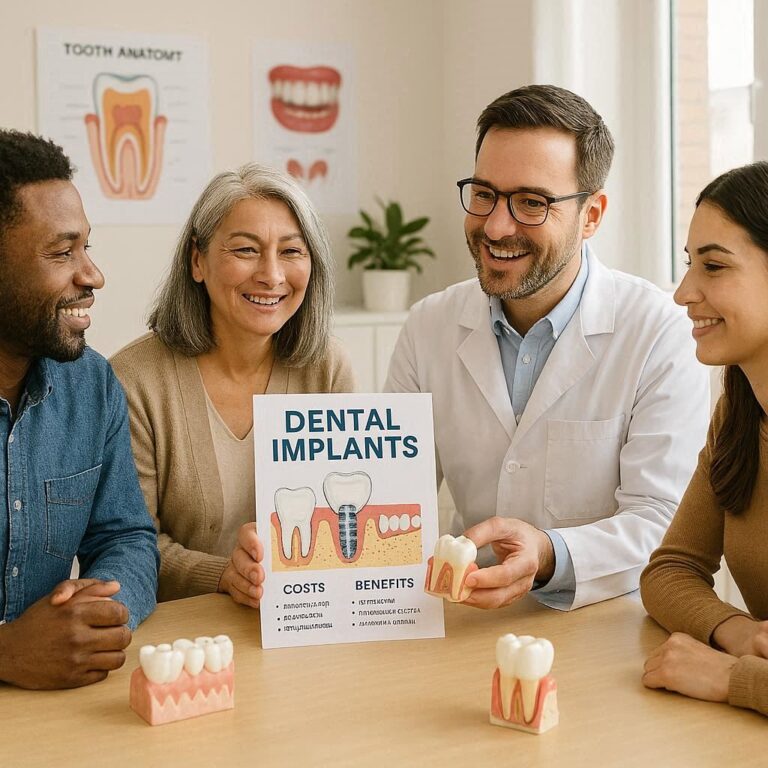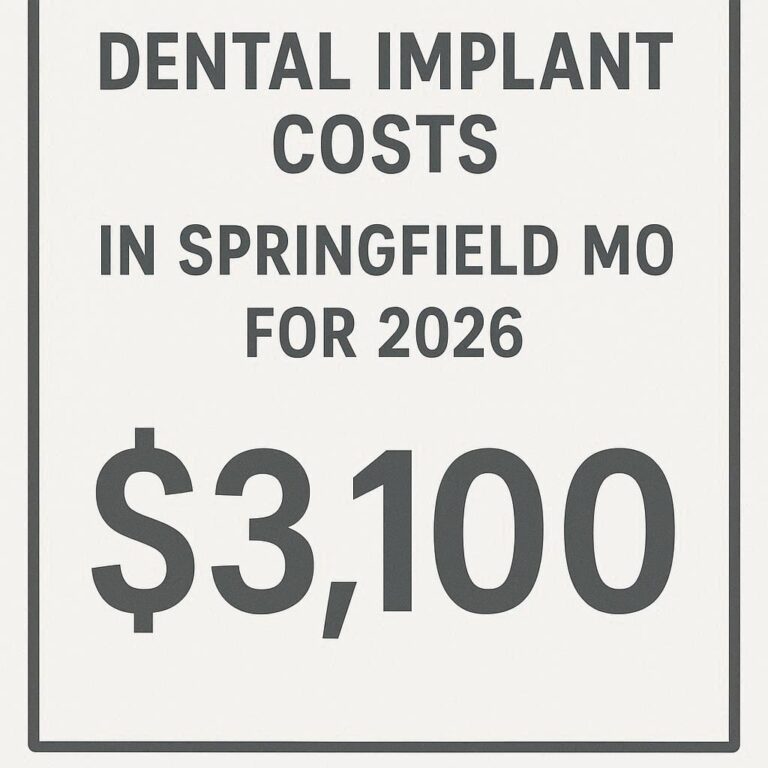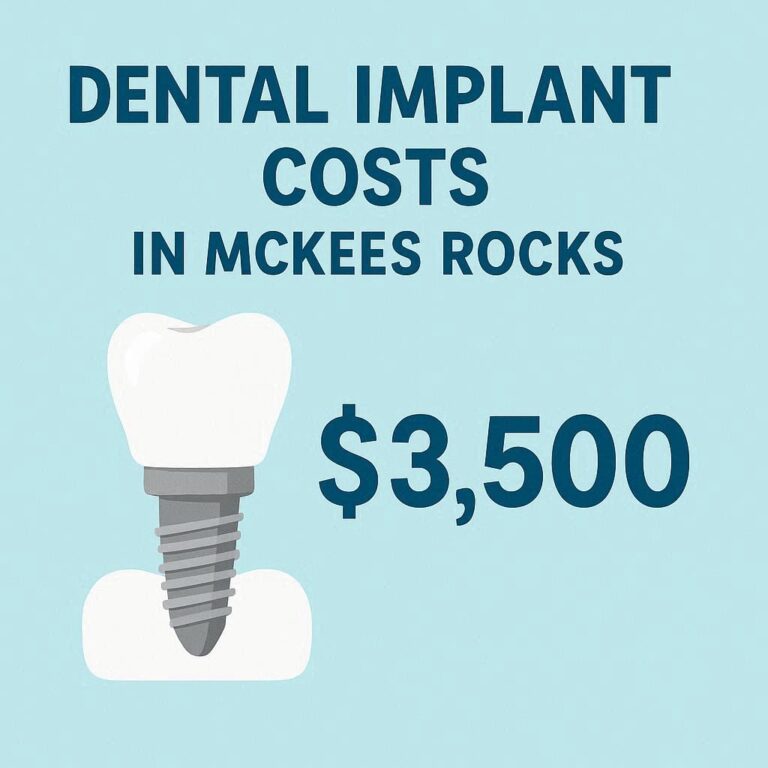Dental Implant Costs for the Whole Mouth
Dental implants have revolutionized the field of dentistry, offering a permanent solution for individuals suffering from tooth loss. Whether due to decay, injury, or disease, losing teeth can significantly impact one’s quality of life, affecting everything from eating and speaking to self-confidence. For those missing all or most of their teeth, full mouth dental implants provide a life-changing solution that restores both function and aesthetics.
However, the cost of full mouth dental implants is a significant consideration for many patients. With prices ranging from 20,000to20,000to50,000 or more, understanding the factors that influence these costs is crucial. This comprehensive guide will delve into every aspect of full mouth dental implant costs, helping you make an informed decision about your oral health.

2. Understanding Dental Implants
What Are Dental Implants?
Dental implants are titanium posts surgically inserted into the jawbone to replace missing teeth. They serve as artificial tooth roots, providing a stable foundation for crowns, bridges, or dentures. Over time, the implant fuses with the jawbone through a process called osseointegration, ensuring long-term stability.
Types of Dental Implants
- Endosteal Implants: The most common type, placed directly into the jawbone.
- Subperiosteal Implants: Placed under the gum but above the jawbone, suitable for patients with insufficient bone density.
- All-on-4 Implants: A technique where four implants support a full arch of teeth, reducing costs and recovery time.
Benefits of Dental Implants
- Improved oral function (chewing and speaking)
- Enhanced appearance and self-esteem
- Prevention of bone loss in the jaw
- Long-lasting and durable solution
3. Factors Influencing the Cost of Full Mouth Dental Implants
Number of Implants Needed
The total number of implants required depends on the patient’s specific needs. While some patients may need individual implants for each tooth, others may opt for solutions like All-on-4, which uses fewer implants to support a full arch of teeth.
Type of Implant Material
Titanium is the most commonly used material due to its durability and biocompatibility. However, zirconia implants are gaining popularity for their aesthetic appeal and hypoallergenic properties, though they tend to be more expensive.
Geographic Location
The cost of dental implants varies significantly by region. For example, procedures in urban areas or countries with higher living costs are typically more expensive than in rural areas or countries with lower costs of living.
Dentist’s Expertise and Reputation
Experienced and highly skilled dentists often charge more for their services. However, their expertise can reduce the risk of complications and ensure better outcomes.
Additional Procedures
Many patients require preparatory procedures such as bone grafts or sinus lifts to ensure the jawbone can support the implants. These procedures add to the overall cost.
4. Breakdown of Full Mouth Dental Implant Costs
| Component | Average Cost |
|---|---|
| Implant Posts | 1,000−1,000−3,000 each |
| Abutments | 500−500−1,000 each |
| Crowns | 1,000−1,000−3,000 each |
| Surgical Procedure | 2,000−2,000−5,000 |
| Bone Graft | 500−500−3,000 |
| Sinus Lift | 1,500−1,500−5,000 |
| Follow-Up Care | 500−500−2,000 |
5. Comparing Full Mouth Dental Implants to Other Tooth Replacement Options
Dentures
- Pros: Affordable, non-invasive, quick solution.
- Cons: Less stable, requires regular maintenance, can cause bone loss over time.
Dental Bridges
- Pros: Fixed solution, more affordable than implants.
- Cons: Requires grinding down adjacent teeth, shorter lifespan than implants.
All-on-4 Implants
- Pros: Fewer implants needed, faster recovery, cost-effective.
- Cons: May not be suitable for all patients, requires sufficient bone density.
6. Financing Options for Full Mouth Dental Implants
Dental Insurance
While many insurance plans do not cover the full cost of implants, some may cover portions of the procedure, such as crowns or extractions.
Payment Plans
Many dental offices offer payment plans, allowing patients to spread the cost over several months or years.
Medical Credit Cards
Specialized credit cards like CareCredit can be used to finance dental procedures, often with promotional interest-free periods.
Health Savings Accounts (HSAs)
HSAs allow patients to use pre-tax dollars to pay for eligible medical expenses, including dental implants.
7. The Dental Implant Procedure: Step-by-Step
- Initial Consultation: Assessment of oral health, X-rays, and treatment planning.
- Treatment Planning: Customized plan based on the patient’s needs and budget.
- Implant Placement Surgery: Surgical insertion of the implant posts into the jawbone.
- Healing and Osseointegration: A period of 3-6 months for the implants to fuse with the bone.
- Placement of Abutments and Crowns: Attaching the visible parts of the teeth to the implants.
8. Risks and Complications of Full Mouth Dental Implants
- Infection: Proper oral hygiene is crucial to prevent infections.
- Implant Failure: Rare but possible, often due to poor osseointegration.
- Nerve Damage: Can cause numbness or tingling in the mouth.
- Sinus Issues: Upper jaw implants may protrude into the sinus cavity.
9. How to Choose the Right Dentist for Full Mouth Dental Implants
- Credentials and Experience: Look for a dentist with specialized training in implantology.
- Patient Reviews and Testimonials: Read reviews to gauge patient satisfaction.
- Technology and Techniques Used: Advanced technology can improve outcomes and reduce recovery time.
10. Frequently Asked Questions (FAQs)
Q: How long do dental implants last?
A: With proper care, dental implants can last a lifetime.
Q: Are dental implants painful?
A: The procedure is performed under anesthesia, so patients experience minimal discomfort.
Q: Can I get dental implants if I have bone loss?
A: Bone grafts or alternative techniques like All-on-4 can make implants possible for patients with bone loss.
11. Conclusion
Full mouth dental implants are a transformative solution for individuals with significant tooth loss, offering unparalleled benefits in terms of function, aesthetics, and oral health. While the cost can be substantial, understanding the factors that influence pricing and exploring financing options can make this life-changing treatment more accessible.
12. Additional Resources
- American Academy of Implant Dentistry
- International Congress of Oral Implantologists
- National Institute of Dental and Craniofacial Research


